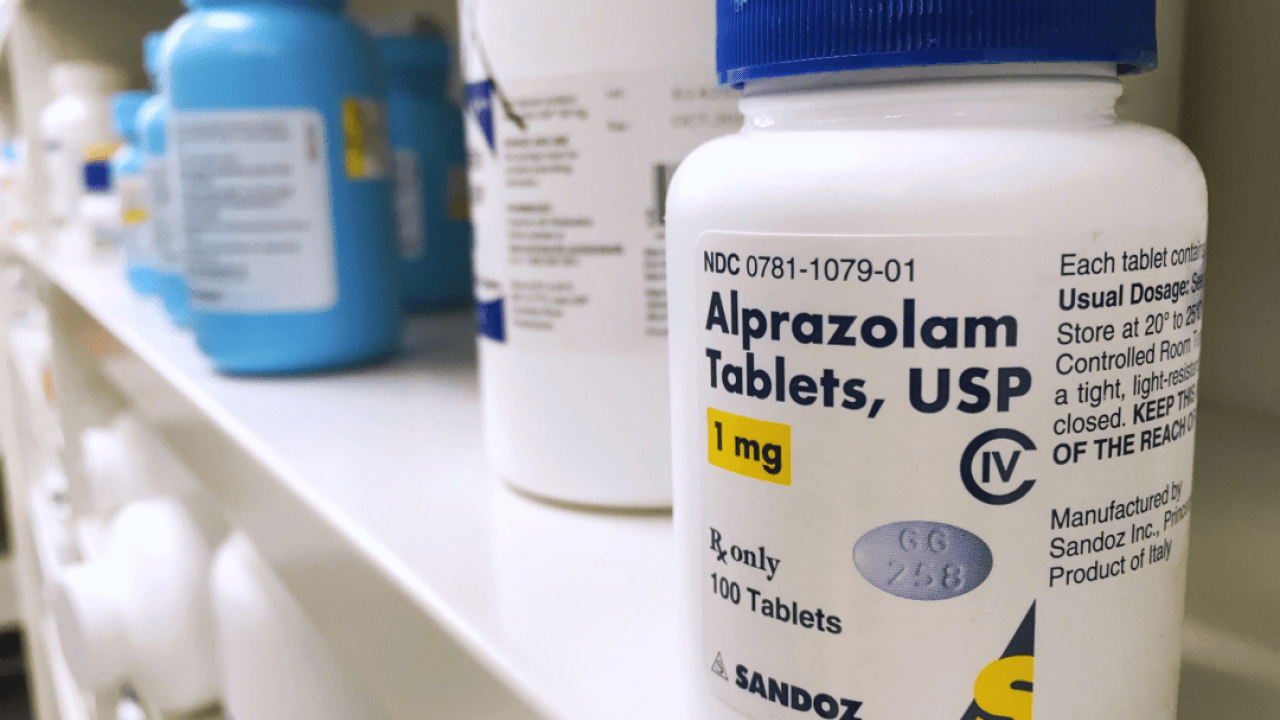Xanax for anxiety relief: What a psychiatrist says you should know before taking it

PureRadiancePhoto // Shutterstock
Anxiety disorders affect more than 40 million adults in the U.S. each year, often interfering with sleep, relationships, work and day-to-day functioning. If you’ve been feeling on edge, overwhelmed or constantly worried, you’re not alone. In this state, desperate for relief, one question that sometimes comes up is: Should I try Xanax?
What is Xanax?
Xanax (alprazolam) is a medication that aims to calm your brain and help you feel less anxious. It typically works quickly, usually within 15 to 30 minutes, and is often used for sudden panic or intense anxiety. But it’s not meant for long-term use. Other medications in the same family (i.e., benzodiazepines) include Ativan (lorazepam) and Klonopin (clonazepam).
Xanax alternatives
But here’s the catch: What often makes Xanax helpful in the short term also makes it a poor candidate for long-term anxiety management. In cases of chronic, generalized anxiety (the kind that hums in the background of everyday life), Xanax may not be the best choice. Instead of reaching for a benzodiazepine, medications like SSRIs (such as Prozac or Zoloft), alpha-adrenergic agents (like clonidine or prazosin), or beta-blockers (like propranolol) may take longer to work— sometimes four weeks or more—but they can create real, lasting changes in the brain’s response to anxiety.
That said, there are times when prescribing Xanax alongside these longer-term treatments is appropriate. If someone is struggling intensely in the early weeks of starting an SSRI, a short-term prescription for Xanax may help bridge the gap. But a psychiatric clinician always weighs the risks and benefits on a case-by-case basis. It’s not a casual decision.
Xanax dependency: How a psychiatric clinician approaches it
One of the most important parts of a psychiatric clinician’s job is protecting patients from the risks of dependence. Benzodiazepines like Xanax are habit-forming, especially when taken on a regular basis over long periods of time.
That’s why a psychiatric clinician may almost never prescribe Xanax as a stand-alone, long-term treatment. Rather, it’s more likely prescribed for short periods, typically between one and six months, and almost always on an as-needed basis. When paired with long-term medication and psychotherapy, many patients find that they need it less and less over time. As their symptoms improve, they can taper off safely and comfortably.
How Xanax can cause rebound anxiety
Rebound anxiety can happen when Xanax wears off and the brain, having adapted to its typically calming effects, is left with an excess of stimulating neurotransmitters. This sudden chemical imbalance can trigger a resurgence of anxiety and sometimes more intense than the original symptoms.
This happens because the brain values balance. When a sedative like Xanax repeatedly suppresses excitatory chemicals such as glutamate and norepinephrine, the brain responds by producing more of them. Once the medication leaves the system, those elevated levels remain, leading to a spike in anxiety. Over time, this cycle can increase both physical and psychological reliance on the medication, making it harder to taper off safely.
Taking Xanax when you don’t actually need it increases the risk of rebound anxiety and dependence. Used thoughtfully and sparingly, it can be helpful. But daily or routine use can backfire, ultimately making anxiety worse.
What a psychiatric clinician wants you to understand about Xanax
Xanax is a medication for relief, not resolution. It’s like putting a bandage on a wound; it helps you get through the worst of it, but it doesn’t heal the underlying problem.
Real, long-term change happens when you address anxiety at its root. That includes the biochemical changes SSRIs can offer, helping neurons form new, more resilient connections, and the cognitive and behavioral shifts we can create through therapy. Medication and therapy together can be incredibly powerful. Why settle for only half of the healing process?
Final thoughts
Xanax and similar medications absolutely have a role in psychiatric care. When prescribed thoughtfully by a trained psychiatric provider, they can offer rapid, meaningful relief for people in acute distress. But they are not a cure. If used improperly or for too long, they can lead to dependence and even make anxiety worse in the long run.
The goal is always to treat the whole person and not just their present symptoms. That means helping people find sustainable, long-term strategies for managing anxiety that go far beyond the temporary calm of a pill.
Note: Dr. Buchholz discloses no financial relationships with any pharmaceutical companies related to this content.
This story was produced by LifeStance Health and reviewed and distributed by Stacker.
![]()
